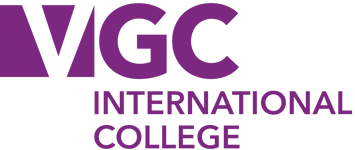Five Tips to Get Ready for IELTS
by MARCO THAM

Hi there! Here is some advice for those of you who are interested in the IELTS test.
Regardless of your English level, there are several things you can do in order to enhance your study efficiency and ultimately improve your IELTS score. IELTS is a globally recognized high stakes English language test. Test takers range from beginner learners to native speakers. It is not surprising that people spend years studying for the test.
In my experience, candidates who only spend a few weeks studying IELTS usually do not get the score they want. Therefore, I strongly recommend you start preparing for the test as early as possible. Besides improving the four skills (Listening, Reading, Writing and Speaking), which you probably have been doing for years, it is also very important to know about the test, for example, test structure, requirements for different skills and so on. You can find out more about the test here.
Just like any other test, it is critical to know how you are evaluated. One of the most useful resources on the website is the public rubrics for the writing and speaking tests. You can download the rubrics here. Read the descriptions very carefully as you are graded based on those criteria. Due to various reasons such as test anxiety that affects your performance, you should always aim 0.5 – 1 band higher than the band score you need. If you need band score 6.5, the descriptions for band 7 are what you need to read carefully.
In the listening test, you will hear a range of accents, such as British, American and Australian accents. Therefore, if you have been studying English in North America for a long time, it’s a good idea to get used to the British accent as well. BBC Learning English is an excellent website for you to familiarize yourself with the British accent. Don’t forget to read the tapescript as well. You can also learn a lot of useful vocabulary there. With the tapescript, you can read along with the recordings. Pay attention to the pronunciation and intonation, as they are quite different from the American and Australian accents.
Time management seems to be the biggest issue in the reading section. A lot of students spend a lot of time reading the passages but fail to finish the questions. Bear in mind that you DO NOT need to understand every single detail in the passages. Your task is to answer all 40 questions instead of understanding the passages thoroughly. So, my first suggestion for reading is: focus on the questions, read them first so that you have a clear idea of what information you are looking for.
Secondly, many students have difficulties understanding vocabulary, especially technical/scientific words. The good news is that you do not need to understand the precise technical/scientific words as long as you know the general idea of the sentence. In most cases you will be able to find the exact same scientific words, for example, names of diseases, in both the questions and the passages. In fact, these words can actually help you locate the answers.
What I am trying to say here is that Task 2 is more important than Task 1. Students often get stuck on Task 1 and end up spending more than 20 minutes on it. Even though it is true that 20 minutes is just the suggested time for Task 1, I still strongly recommend you spend no more than 20 minutes on Task 1. It is because Task 2 is worth TWICE as much as Task 1. Therefore, it might be a good idea to do Task 2 first. Try it out and see which task you feel more comfortable doing first. Also, you will lose marks if your scripts are too short. Make sure you write more than 150 words for Task 1 and 250 words for Task 2.

One of the common problems in speaking test is that students try very hard to impress the examiner by using complicated sentence structures and big words that they might not know how to use and pronounce properly. I suggest that you only use sentence structures and vocabulary that you are comfortable with. It is very likely that you sacrifice your fluency and pronunciation when you use words that you are not familiar with.
Having said that, using a wide range of vocabulary and different sentence structures in your speech is crucial, especially if you want band score 6.5 or higher. My advice is that you practise using the vocabulary and sentence structures that you learn so that you will not struggle with pauses while trying to use them in the official test.
[custom_author=Marco Tham]
